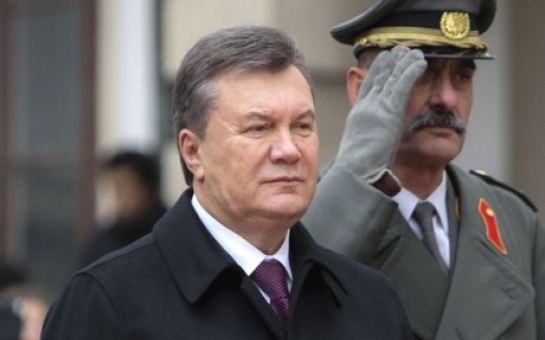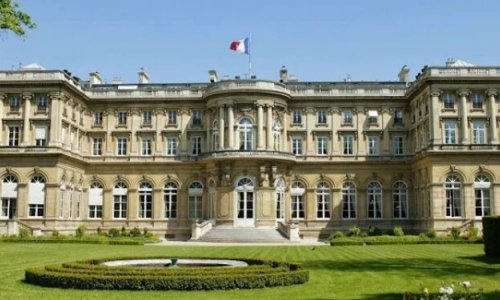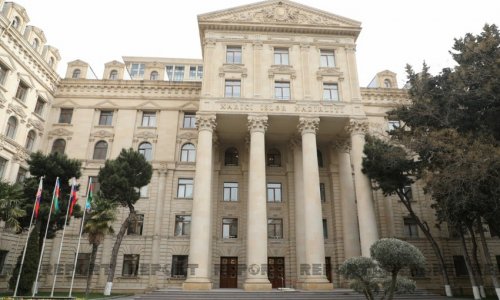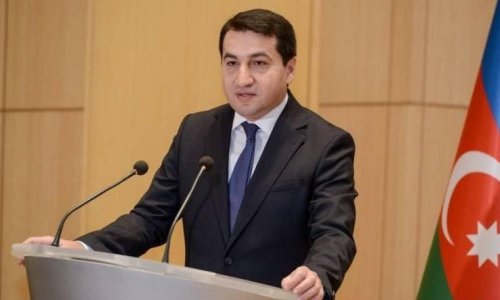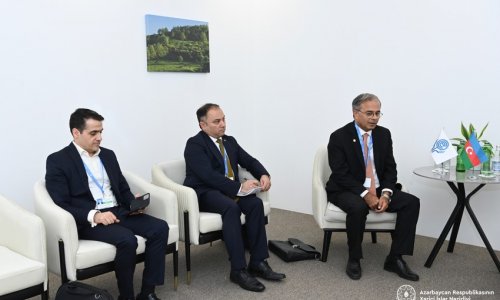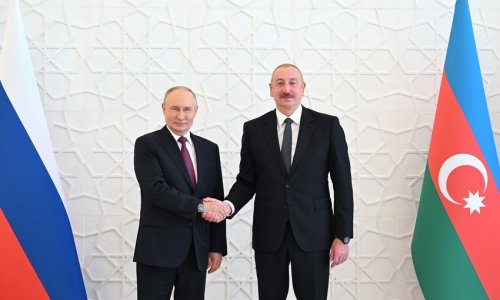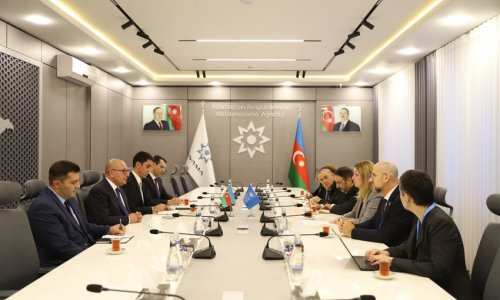The European Union and Russia traded charges of blackmail on Friday over the future of Ukraine.
The Kremlin threatened the country with trade losses worth billions and costing hundreds of thousands of jobs if it signed up to a strategic pact with the European Union, senior Lithuanian officials said.
President Vladimir Putin of Russia said the EU was putting pressure on Kiev and organising mass protests against President Viktor Yanukovych.
A week before a critical EU summit in Vilnius, the Lithuanian capital, that was to be capped by the Brussels-Kiev pact, Yanukovych abruptly pulled out of the deal on Thursday, leaving EU policy in shreds and Putin relishing victory in the contest for Ukraine's future.
The volte face was a result of Russian blackmail, the Lithuanian president's office said as senior officials in Brussels said Yanukovych was sacrificing the hopes and wishes of most of his countrymen on the altar of Russian money and contracts.
Yulia Tymoshenko, the imprisoned former prime minister and arch-rival of Yanukovych, whose release and transfer to Germany has been the central condition for the EU pact, pleaded with the president to reverse his decision.
In a letter to Yanukovych from prison, she renounced the release condition and pledged she would stay in jail in Ukraine if Yanukovych relented. Fear of facing Tymoshenko in a 2015 presidential battle is believed to be one of the main reasons for the president's rebuff of the EU.
"I give you my word that, if you make a decision to sign the [EU] agreement, on the same day I will appeal to European leaders asking them to sign the agreement without fulfilling all criteria including the part regarding my release. I don't know if they will listen to my appeal but I will do everything possible for the signing of the agreement even as I continue to sit in prison," said Tymoshenko. "This is the only chance for you to survive as a politician," she told Yanukovych. "Because now, when you are killing the agreement you are making the biggest mistake of your life."
The thunderbolt from Yanukovych brought pro-European protesters on to the streets of central Kiev before what promises to be a weekend of campaigning climaxing in a large rally on Sunday. Around 1,500 took to the streets waving EU flags on Thursday evening. Organisers expect tens of thousands to join protests on Sunday. Jovita Neliupšiene, foreign policy aide to President Dalia Grybauskaite of Lithuania, said Yanukovych had called her before announcing he was ditching the EU pact, arguing that the pressure from Moscow was irresistible.
Yanukovych and Putin had a secret meeting last week. The Ukrainian and Russian prime ministers then met in Saint Petersburg on Wednesday.
"Ukraine could not withstand the economic pressure and blackmail. It was threatened with restricted imports of its goods to Russia, particularly from companies in eastern Ukraine, which accommodates the greater share of its industry and employs hundreds of thousands of people. Calculations suggest this would lead to billions in losses. These causes behind the decision were specified by President Yanukovych in the telephone conversation with the president earlier this week," Neliupšiene told a Baltic news agency.
Eastern Ukraine, traditionally pro-Russian, is also Yanukovych's power base.
With Moscow and European capitals locked in rancour and recrimination over Ukraine, Putin let fly at the EU: "We have heard threats from our European partners towards Ukraine, up to and including promoting the holding of mass protests. This is pressure and this is blackmail."
With the Ukrainian economy in critical condition, the rebuff to Europe could cost it dearly in terms of EU financial support and the prospects of loans from the IMF.
The Vilnius summit was seen as a critical juncture, deciding whether Ukraine would opt for further integration with the EU or see its future in closer ties with Russia. Kiev has been pursuing the trade deal and political association agreement with the EU for the past five years, only to drop it at the last minute. Armenia did the same in September, yielding to Russian pressure and instead joined a Russia-centred Eurasian customs union.
"They are not going Wwest. I don't think they are going Eeast. I feel they are going down," said Carl Bildt, the Swedish foreign minister, who has campaigned strongly for Ukraine's European option. "That's roughly where we are because of the economic problems."
Official reaction in Brussels was one of disappointment, pleading with Yanukoviych to reconsider, and emphasising that no doors were being closed. Privately, however, senior officials were stunned and conceded that the EU's policy towards the post-Soviet states to the east had been set back years. The two EU envoys on the issue – Ireland's Pat Cox, a former European parliament president, and Aleksander Kwaśniewski, a former Polish president – voiced "deep disappointment at the unilateral decision of the Ukrainian government … we appeal to the president in this difficult situation.
"The people of Ukraine should be reassured by the leaders of the EU that the door will not be shut on the European hopes and aspirations of Ukraine."
The US state department accused Yanukovych of passing up a "historic opportunity". It hinted at economic and financial consequences for Ukraine, as did Catherine Ashton, the EU's top foreign policy official.
"This is a disappointment not just for the EU, but, we believe, for the people of Ukraine," she said. "The signing of the most ambitious agreement the EU has ever offered to a partner country would have sent a clear signal to investors worldwide as well as to international financial institutions that Ukraine is serious about its modernisation pledge and becoming a predictable and reliable interlocutor for international markets. It would have provided a unique opportunity to reverse the recent discouraging trend of decreasing foreign direct investment in Ukraine and would have given momentum to negotiations on a new standby arrangement with the IMF."
Michael Leigh, a former senior EU official and co-architect of the policy, said: "People in Ukraine want their country to become more democratic and more prosperous. This opportunity … may not come again."
Michal Baranowski, the Warsaw director of the German Marshall Fund thinktank, said: "Geopolitical competition in the region is back. The EU should be ready for a long game."
(The Guardian)ANN.Az

